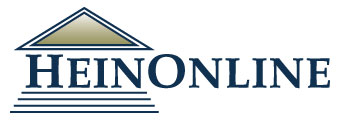Legal instruments of financial support for low-carbon energy in the legal system of Poland
Abstract
In Polish law, legal instruments for financial support for low-carbon energy can be described and evaluated according to certain general criteria. First, it should be noted that low-carbon energy is not a self-contained goal of financial support. However, it can be concluded that Polish law provides for such a value protected by law, and consequently, it is eligible for financing. Furthermore, legal instruments of financial support for low-carbon energy take the form of both public and non-public funds. Moreover, these instruments are characteristics of both public and private law. However, the predominant legal instrument providing such support is a contract, although sometimes it is deeply rooted in public law. Alternatively it should be noted that the practical uses of instruments of financial support for low-carbon energy are complicated. This requires elaborate applications with numerous attachments, including documents and declarations. In addition, the process of granting such funds lasts a long time and is preceded by audits. Consequently, the instruments were not used to their fullest extent.
References
Adamczyk J & Graczyk M (2020) Green certificates as an instrument to support renewable energy in Poland – strengths and weaknesses, Environmental Science and Pollution Research 27(6), pp. 6577–6588, https://doi.org/10.1007/s11356-019-07452-5
Asunción M, López T & Garcia E A (eds.) (2015) Derecho ambiental, Madrid.
Bar M, Górski M, Jendrośka J, Jerzmański J & Pchałek M (2014) Prawo ochrony środowiska. Komentarz, Warszawa.
Bar M, Górski M, Jendrośka J, Jerzmański J & Pchałek M (2019) Prawo ochrony środowiska. Komentarz, Warszawa.
Belshaw Ch (2005) Filosofia del medio ambiente. Razon, naturaleza y preocupaciones humanas, Madrid.
Brzeziński M (2009) Rodzaje bezpieczeństwa państwa, in: Sulowski S & Brzeziński M (eds.) Bezpieczeństwo wewnętrzne państwa. Wybrane zagadnienia, Warszawa.
Brzezińska-Rawa A & Goździewicz Biechońska J (2014) Recent developments in the wind energy sector in Poland, Renevable and Sustainable Energy Reviews 38, pp. 79–87, https://doi.org/10.1016/j.rser.2014.05.086
Bukowski Z (2012) Zrównoważoy rozwój w systemie prawa, Toruń.
Bukowski Z, Czech E, Karpus K & Rakoczy B (2013) Prawo ochrony środowiska. Komentarz, Warszawa.
Damohorskŷ M (2007) Právo životnįho prostředi, Praha.
Elżanowski F M & Sokołowski M (2010) Proces inwestycyjny w kontekście pakietu klimatyczno-energetycznego Unii Europejskiej, in: M. Cherka, Elżanowski F M, Swora M & Wąsowski K A (eds.) Energetyka i ochrona środowiska w procesie energetycznym, Warszawa.
Giecman A P & Szulga M W (2008) Ekologiczeskoje prawo Ukrainy, Charkow Odessa.
Gnatowska R & Moryń-Kucharczyk E (2019) Current status of wind energy policy in Poland, Renewable Energy 135, pp. 232–237, https://doi.org/10.1016/j.renene.2018.12.015
Górski M, Pchałek M, Radecki W, Jerzmański J, Bar M, Urban S et al. (2019) Prawo ochrony środowiska. Komentarz, Warszawa.
Gruszecki K (2019) Prawo ochrony środowiska. Komentarz, Warszawa.
James S P (2015) Environmental Philosophy. An Introduction, Cambridge.
Jendrośka J & Bar M (2008) Czynniki wpływające na implementację wspólnotowego prawa ochrony środowiska w Polsce: próba oceny, in: Jendrośka J & Bar M (eds.) Wspólnotowe prawo ochrony środowiska i jego implementacja w Polsce trzy lata po akcesji, Wrocław, pp. 67–68.
Kaminska N W, Kaminskij A I & Kunenko I S (2013) Ekologiczne prawo, Kiev.
Kindl M & David O (2007) Úvod do práva životnįho prostředi, Plzeň.
Kitzing L & Wendring P (2016) Implementation of Auctions for Renewable Energy Support in Poland: a Case Study: Report D7.1-PL, Technical University of Denmark.
Koch H-J (2007) Umweltrecht, München.
Korzeniowski L F (2017) Podstawy nauk o bezpieczeństwie, Warszawa.
Maglia S (2009) Diritto ambientale, Wolters Kluwer.
Marchello F, Perrini M & Serafini S (2007) Compare in Italien Law, Diritto dell’ambiente, Simone.
Mariotti E & Iannantuoni M (2011) Il nuovo diritto ambientale, Maggioli editore.
Maslin M (2014) Zmiany klimatu, Oxford–Łódź, 2018.
Miller V J (ed.) (2017) The Theological and Ecological Vision of Laudato Si’. Everything is connected, London, Oxford, New York, New Delhi, Sydney.
Ozorowski M (1999) W kierunku ekoteologii, in: Dołęga J M & Czartoszewski J W (eds.) Ochrona środowiska w filozofii i teologii, Warszawa.
Paska J, Surma T, Terlikowski P & Zagrajek K (2020) Electricity Generation from Renewable Energy Sources in Poland as a Part of Commitment to the Polish and EU Energy Policy, Energies 13(4261), https://doi.org/10.3390/en13164261
Rakoczy B (2005) Ograniczenie praw i wolności jednostki ze względu na ochronę środowiska w Konstytucji Rzeczypospolitej Polskiej, Toruń.
Sękulski Ł & Żuchowski S (2018) Financing sources of pro-ecological investments in the field of renewable Energy in Poland – an overview of the support mechanisms, E3S Web of Conferences 49, https://doi.org/10.1051/e3sconf/20184900099
Stypuła D (2015) Ekologiczne, etyczne i społeczno-polityczne aspekty transformacji polityki energetycznej w Niemczech i w Polsce, in: Knopp L & Górski M (eds.) Deutschlands Energiewende und Polens Einstieg in die Kernenergie? Eine Bestandsaufnahme, Berlin, pp. 299–325.
Szyrski M (2017) Rola samorządu terytorialnego w rozwoju odnawialnych źródeł energii (OZE), Warszawa.
Trela M & Dubel A (2017) Comparing the support systems for renewable energy sources in Poland green certificates vs auction systems, Polityka Energetyczna 20(2), pp. 105–116
Woźniak J, Krysa Z & Dudek M (2020) Concept of government-subsidized energy prices for a group of individual consumers in Poland as a means to reduce smog, Energy Policy 144, https://doi.org/10.1016/j.enpol.2020.111620
Zdyb M, Stelmasiak J & Sikora K (eds.) (2014) Podstawowe płaszczyzny zagrożeń bezpieczeństwa wewnętrznego. Aspekty materialnoprawne, Warszawa.












